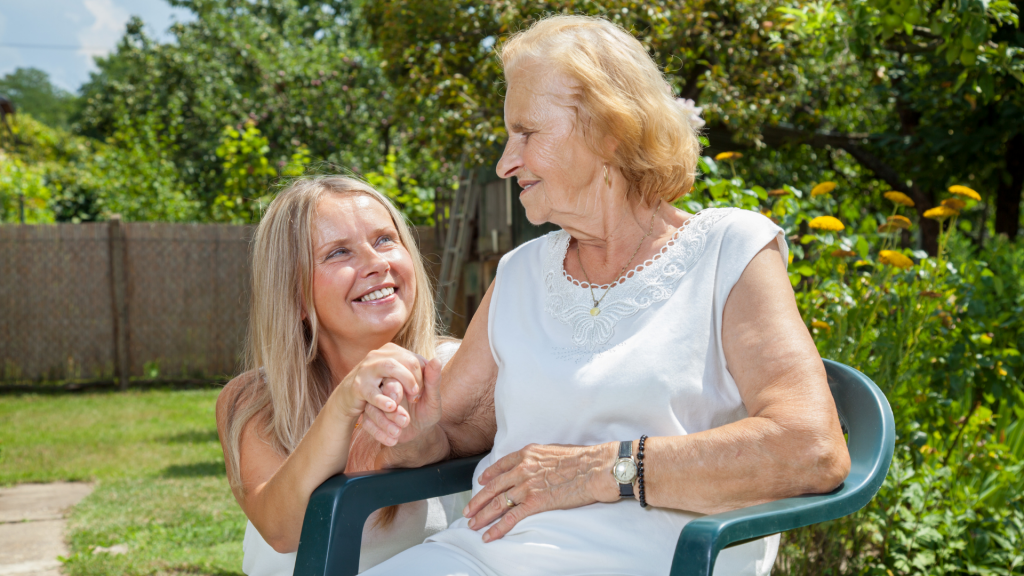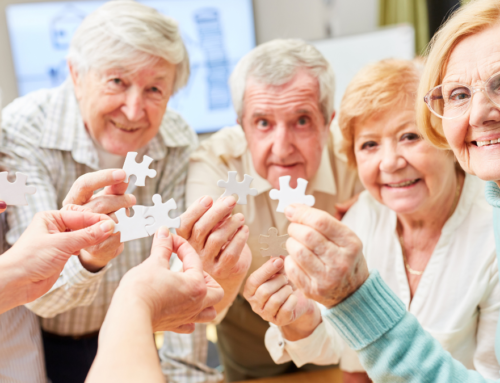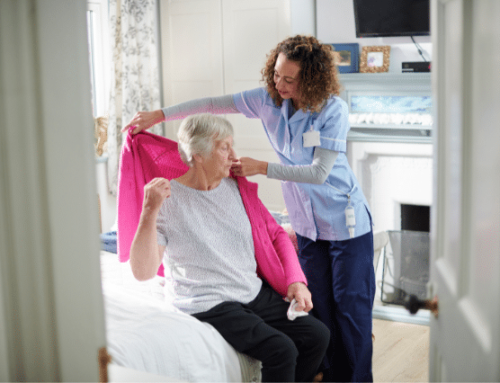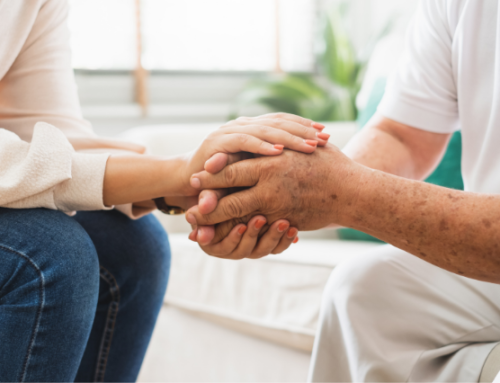
Resistance to outside care is fairly common among elderly people. It can be difficult for elderly adults to accept the help of others, especially if they previously lived alone or with family members (such as an elderly adult child).
All elderly people who are unable to do things on their own should receive assistance. Resistance may make it seem like outside care isn’t necessary, however, not receiving help could have serious health consequences for elderly people who become sick or injured without assistance. If you’re concerned that your loved one’s lack of cooperation is due to illness rather than a desire for independence, then watch them closely and take note of any changes.
Resistance to outside care is one reason elderly people may not receive the help they need. This could be due to their own stubbornness or pride, but sometimes elderly adults perceive that too much help will mean losing their independence. Your elderly loved one’s refusal to accept your offers of assistance might make you feel angry or frustrated, but it’s important not to take things personally. You can’t force someone else to change their opinion about accepting help, so try to find out why they’re resistant in order to better understand them and begin working on a solution together. Focus on the elderly person’s perspective and how that might be different from yours.
As a caregiver for an elderly family member, you are in a unique position to help your loved ones stay healthy and happy for as long as possible. If they resist your offers of outside care, try to understand where they’re coming from by considering their perspective . For example, elderly people may be more receptive to outside care if it means avoiding a loss of independence or socialization opportunities. Once you better comprehend why your elderly loved one is resistant to going out, you can use this knowledge to find ways around their concerns. Consider hiring an elderly care service provider who can assist with things that are important to your loved one while respecting their desire for privacy and alone time when needed.
If your elderly loved one is unreceptive to outside help, you can use this knowledge about elderly adults’ perception of outside assistance to begin working on a solution together.
One way that you might be able to convince your loved one to accept your offers of help is by finding some common ground . For example, if they enjoy watching sports or listening to music, then you could offer them assistance when watching a game or going to a concert. As you seek out areas in which your elderly loved one might accept your assistance, try to use their desires and personal preferences as a starting point instead of simply trying to impose your own needs on them.
Consider these tips for caring for the elderly who don’t want help.
- If elderly people resist outside care due to feelings of shame or embarrassment, then they may be more receptive if they think they can keep it a secret from others. You could offer help by scheduling an elderly care service provider during times that they’re less likely to have visitors, such as early in the morning or late at night.
- Elderly people may willingly accept outside elderly care if it means avoiding unwanted social interactions. If an elderly person resists help due to feelings of loneliness or isolation, then you could hire elderly care service providers who can visit them during times they would normally be alone.
- Sometimes elderly people resist outside elderly care because they want to assert their independence. You might be able to encourage compliance by using rewards as motivation, such as offering an elderly loved one small treats when they allow an elderly care service provider into their home.
- Elderly people sometimes refuse offers of assistance due to fear that giving in will make them appear weak or less capable than others around them. Helping your elderly loved one understand that allowing help doesn’t mean weakness can go a long way towards convincing elderly people to accept elderly care.
- If elderly people you love are resistant to elderly care, try not to take it personally and remind yourself that they’re likely struggling with a number of different emotions. For example, elderly people may feel embarrassed about needing assistance or worried that caring for them will be too difficult for you. As a caregiver, it’s important for you to understand what your elderly loved ones are going through in order to show them the support they need.
There are many reasons why an elderly person might reject offers of assistance from concerned family members and friends. By working together to find solutions that address elderly care issues from the elderly person’s perspective, you can hopefully come up with a solution your elderly loved one will be more willing to accept.
If it’s important for your elderly loved ones’ well-being, consider employing the services of an elderly in home service provider or nursing agency . With these compassionate teams at your side, you’ll be able to provide the support and relief needed by older adults in need.
Elderly people often need to feel independent and in control of their lives, so it’s understandable if there are some elderly assistance issues they’re uncomfortable discussing. However, as a caregiver, it can sometimes be difficult to know how to help elderly relatives who don’t want outside elderly care . You may need the assistance of an elderly care attorney or geriatric care manager for advice on ways elderly people who refuse outside elderly help might be convinced into accepting the assistance they need.
Remember that whatever reasons your elderly loved ones give you about why they feel reluctant towards elderly care, elderly people often experience a range of emotions during the aging process. Try to understand where your elderly loved ones are coming from and take steps to address their elderly care concerns based on elderly feelings rather than assumptions. If necessary, you may want to hire an elderly care service provider who specializes in caring for difficult elderly individuals and see if that makes a difference. The best way to convince elderly people who don’t want outside assistance is with patience and understanding.
Elderly people may be reluctant towards elderly services because of some unpleasant past experiences with family members or other caregivers. Do your best to come up with a solution that takes your elderly loved ones’ feelings into consideration and ask for their input on what might work. If necessary, hire an elderly home service provider or nursing agency . With patience and understanding on your side, you should be more likely to convince older adults into accepting outside elder assistance.
If you’re caring for an elderly loved one who refuses outside elderly assistance because they feel like they should be self-sufficient, try making changes in your own life that would make it easier for them. For example, if getting dressed is difficult due to arthritis, consider hiring an elderly home service provider or nursing agency . By taking the pressure off of your elder relative and encouraging their participation in deciding how best to solve issues concerning outside elder help, you might be able to convince older adults into accepting outside senior help.
Elderly people may also resist outside care services because they’re uncomfortable discussing certain problems or issues. Make sure your elderly loved ones know that you’re there to support them during this difficult time and try to find out if they have any specific concerns about receiving care. This may be especially important if the reason they don’t want elder care is due to past negative experiences with family members.
For elderly people who are reluctant towards accepting elderly care services, try finding common ground that allows both you and your elderly loved ones to come up with a solution that will meet their unique elderly needs. To convince elderly relatives to accept outside elderly help , try working together as a team, making changes in your own life if needed so your elderly loved ones don’t have to go it alone, and getting an outside perspective on the issue from an elderly care attorney or geriatric care manager. Silver Companions is here to help. We would love to chat with you about your unique situation and see how we may be able to help. We offer a wide range of services to meet most any situation or budget, and we also have access to numerous resources that can help you decide on the right course of action. Give us a call at (678) 494-8129 or email us at info@SilverCompanions.com. We’re always happy to discuss your specific situation to help you make an informed decision about your next steps forward.





